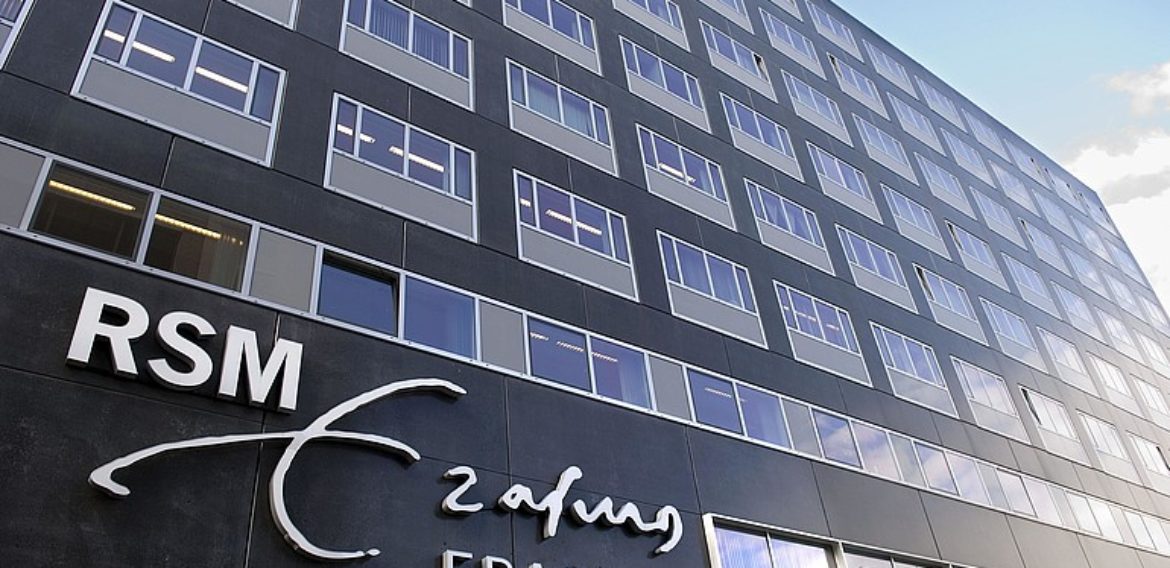Rotterdam School of Management
Brandon Kirby- Director, Marketing & Admissions, Rotterdam School of Management What is the one area of your program that you wish applicants knew more about? Personal Leadership Development (PLD) is the least understood part of our program when we are meeting with candidates around the world. Candidates ask about internships, exchange programs and financial aid, but rarely does someone ask about PLD. For us, successfully completing this part of the program has a major impact on a candidate’s future success in their career. PLD focuses on three areas that contribute to the candidate as a leader – skills, awareness and career. Skills related components are job interview tips, negotiating skills and presentation workshops. Awareness focuses on Emotional Intelligence (EI), which asks the candidates to look within themselves to become a better leader. Finally, career focused is about identifying what they’d like to do after the program and then positioning the candidate for success in that field. What’s the single most exciting development, change, or event happening at you MBA program this coming year? Tying in with the answer above, we have completely redesigned the Personal Leadership Development (PLD) portion of our program. We’ve added in more coaching hours, included more sessions on communications and leading teams. Far too many changes to list here, but the program is more closely integrated into the program than ever before. Walk us through the life of an application in your office from an operational standpoint. What happens between the time an applicant clicks “submit” and the time the committee offers a final decision (e.g. how many “reads” does it get, how long is each “read,” who reads it, does the committee convene to discuss it as a group, etc.) Once a candidate submits their application, the admissions team reviews to make sure they have the basic requirements for entry (undergraduate degree, GMAT, etc.), we will arrange for an interview. The interviewer is someone who has yet to have contact with the candidate – an alumni or other RSM faculty member. After the interview, the interviewer fills out a comment sheet for the admissions committee to review during the review process. Each application is reviewed by at least three different people during the process and this is before the committee meets to review their candidacy. At this point, we have a committee review where we consider all parts of the application, paying close attention to the essays and interview comment sheets. We consider the candidate themselves, but also how they’ll fit into the overall class. It’s important to us that we have the right mix of people in the program. How does your team approach the essay portion of the application specifically? What are you looking for as you read the essays? Are there common mistakes that applicants should try to avoid? One key thing they should keep in mind as they sit down to write them? The information we learn about a candidate in their essay will often show up in the questions that we ask during the interview. In addition, the essays allow us to better understand the candidate. Spelling errors are a huge no-no. As simple as it sounds, we still see spelling errors in many essays. Write your essay and set it aside for a week, come back and re-read it – you’ll most likely catch errors. Finally, be honest and be a human being. After all, we aren’t admitting a number or GMAT score – we’re admitting you! Do you have any application tips (for essays & recommendations) for MBA applicants? For the essays – Go deeper than the surface. While listing your accomplishments and professional credibility is great, we’ve probably already seen these items in your CV. The essay is the moment in the process where you can help us get to know you. Our job is not only to find candidates who will be academically successful, but also those who will make great classmates. For this reason, we want insight into who you are as a person and the essays are the perfect opportunity for this. For the recommendations – please tell your referees to be honest and insightful. Everyone has growth opportunities and we like to see how and where a candidate can improve. It’s actually worse if a reference letter doesn’t share any weaknesses of the candidate, as we like to use this information in the interview process. What are the most important aspects of the MBA application process besides GMAT score, prior GPA and current job position? Letters of recommendation are extremely important. It’s provides another view of the candidate, which we can use to compare and contrast. The admissions team does its best to learn as much as we can about a candidate, but we have a limited numbers of inputs to do so. The reference letters give us something further to explore that goes beyond the usual information provided in the application package. How can a candidate overcome a lower GMAT score? One thing is to communicate the score as soon as you can to your RSM Admissions Manager. Have a conversation about what happened. For example, did you not prepare as much as you should have? In one instance, the test centre lost power mid-way through the candidate’s exam. Once we knew this fact, we weren’t surprised that their final score was impacted as a result. While a conversation can’t always make up for a lower GMAT score, it can help us understand each situation. What resources are available at your MBA program to assist with internship and full-time job opportunities? Our career’s department excels at working with candidates to find internship and job opportunities. Whether through mock interviews, recruitment events or one-on-one career coaching, the team works with the candidates throughout the year to transition into the career of the candidate’s choice. It’s important for candidates to remember that the career office’s job is to bring them the opportunities to get the job (via interviews, career fairs, recruitment events, etc.), but ultimately it’s up to the candidate to convert these opportunities. We can prepare you for the interview, but we can’t go in and do it for you! Finally, we have strong job placement rates, both in the Netherlands and in Europe, so we are very highly ranked in International Mobility by the Financial Times.


